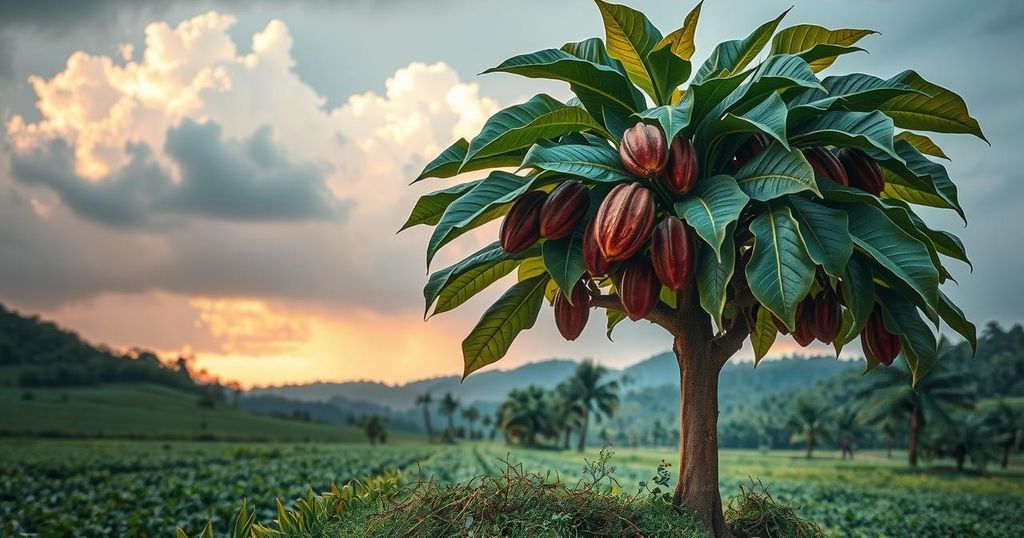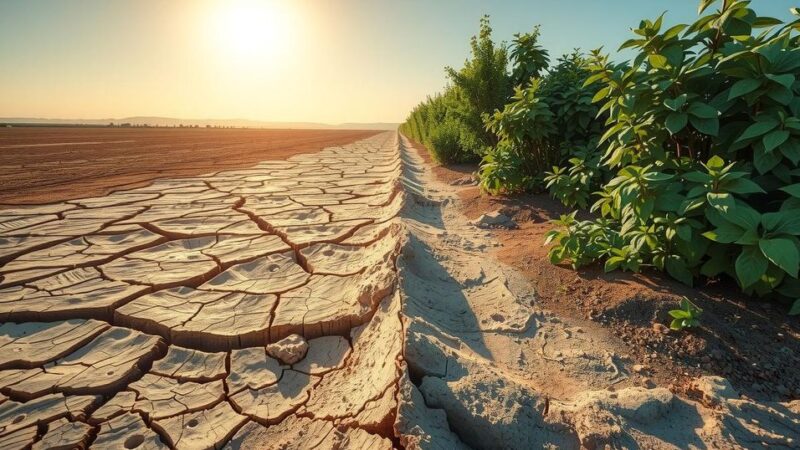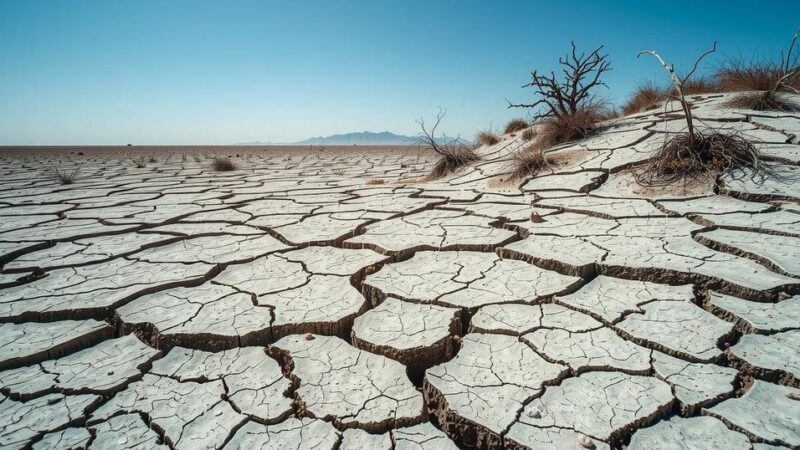Climate change is drastically impacting cacao production, primarily in West Africa, leading to significant price increases for chocolate. The effects are already visible, with a 14 percent drop in production for the 2023-24 season. As climate change continues to alter agricultural conditions, both farmers and consumers will suffer the consequences, highlighting an urgent need for collective action to combat this global issue.
Climate change is an undeniable phenomenon that transcends belief and opinion; it remains a reality impacting our world. Despite collective efforts being essential to combat this global challenge, humanity often struggles to unite for such a cause. As the effects of climate change become increasingly evident through extreme weather, consumers can expect these changes to manifest in everyday life, particularly with food products like chocolate.
The rising costs of chocolate are becoming apparent, largely due to the adverse effects of climate change currently impacting major cocoa-producing nations. Specifically, Côte d’Ivoire, Ghana, Cameroon, and Nigeria are vital to the global cocoa industry, accounting for roughly 70 percent of cacao production. Altered rainfall patterns and higher temperatures have hindered these regions’ agricultural productivity, resulting in a 14 percent decline in global cacao output for the 2023-24 season, exacerbating price increases.
Notably, mainstream media, exemplified by CNN, has inadequately addressed the underlying issue of climate change when reporting on these phenomena. For instance, a recent article regarding the spike in chocolate prices around Valentine’s Day merely attributed it to bad weather in West Africa, failing to establish the connection to climate change. This misleading approach overlooks the broader context of climate challenges facing cacao production.
Looking forward, the implications of climate change for cacao producers are significant and pressing. A report from 2024 indicates that climate change has expanded the duration of hot days in cacao-growing areas, damaging essential harvests. Consequently, farmers face substantial financial losses, affecting chocolate availability and driving prices beyond consumers’ reach.
The impact of cacao extends beyond confectionery consumption; it is also prevalent in various industries including cosmetics and pharmaceuticals. Cacao serves as an ingredient in medications, enhancing patient tolerance through its coating properties. Therefore, the ramifications of reduced cacao supply touch many aspects of consumer goods and health products.
Climate change is not a distant issue reserved for future generations; it is an urgent concern necessitating immediate attention and action from today’s populace. Previous generations have often deferred responsibility, leaving Millennials and Generation Z to confront and remedy the consequences of neglect. The time has come to rise above past inaction and take meaningful strides toward mitigating climate change and preserving essential resources for the future.
In summary, climate change is directly affecting cacao production, significantly impacting chocolate prices and availability. With key producing regions experiencing adverse climate effects, the future of chocolate and its derivatives appears uncertain. As younger generations bear the consequences of prior negligence, it is imperative to advocate for collective action to address climate change and ensure a sustainable future.
Original Source: www.vice.com






